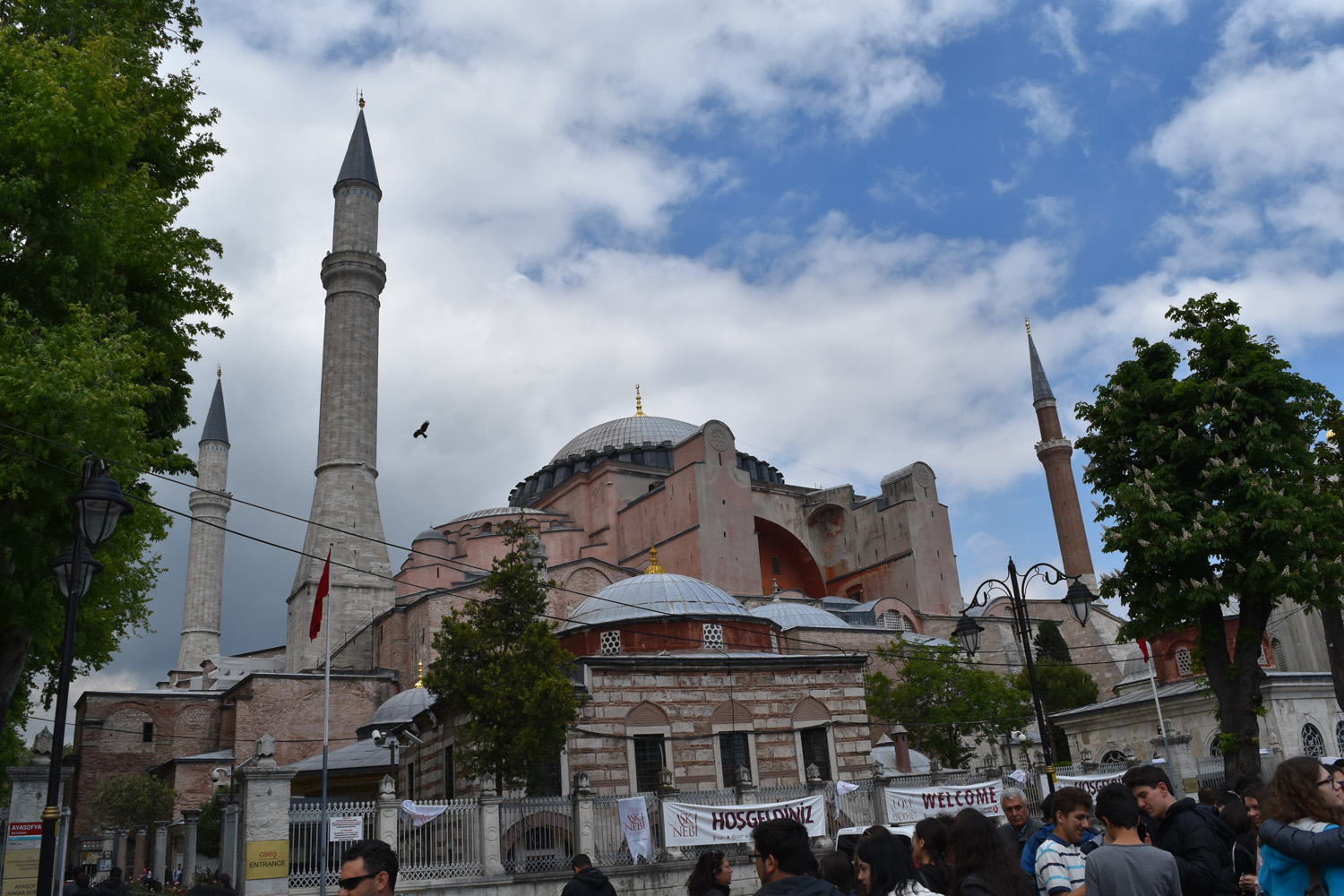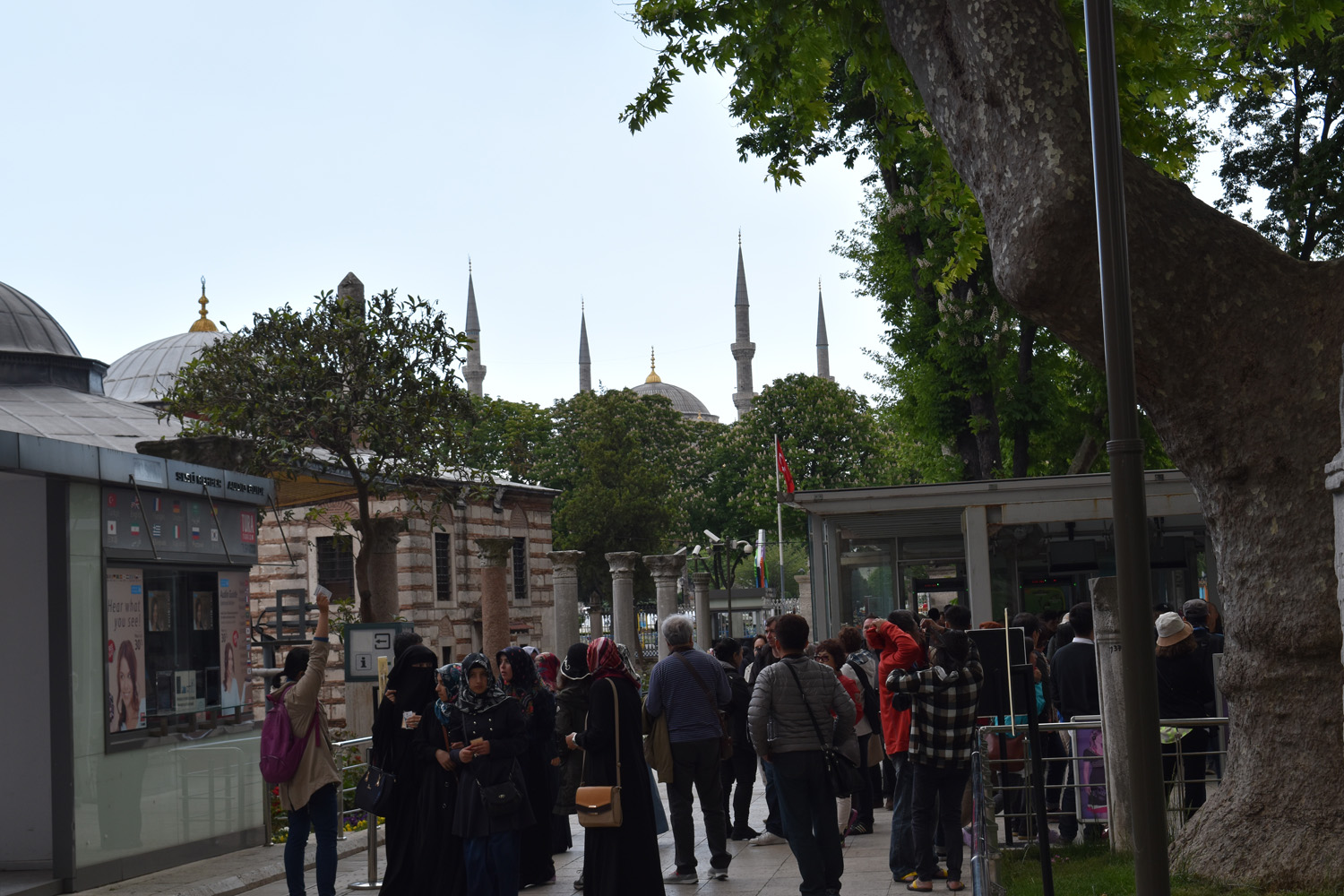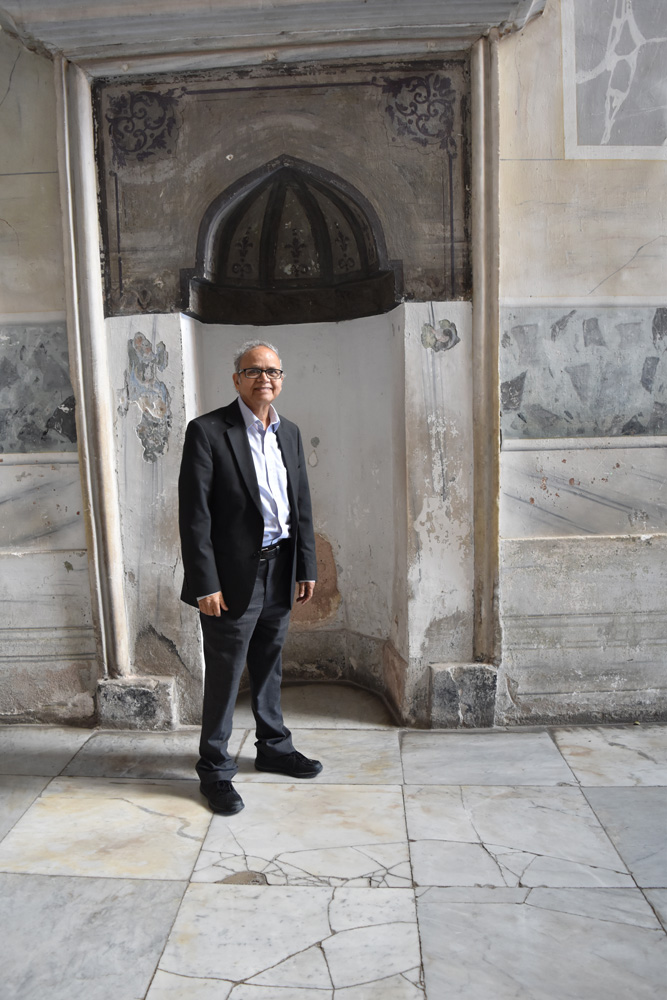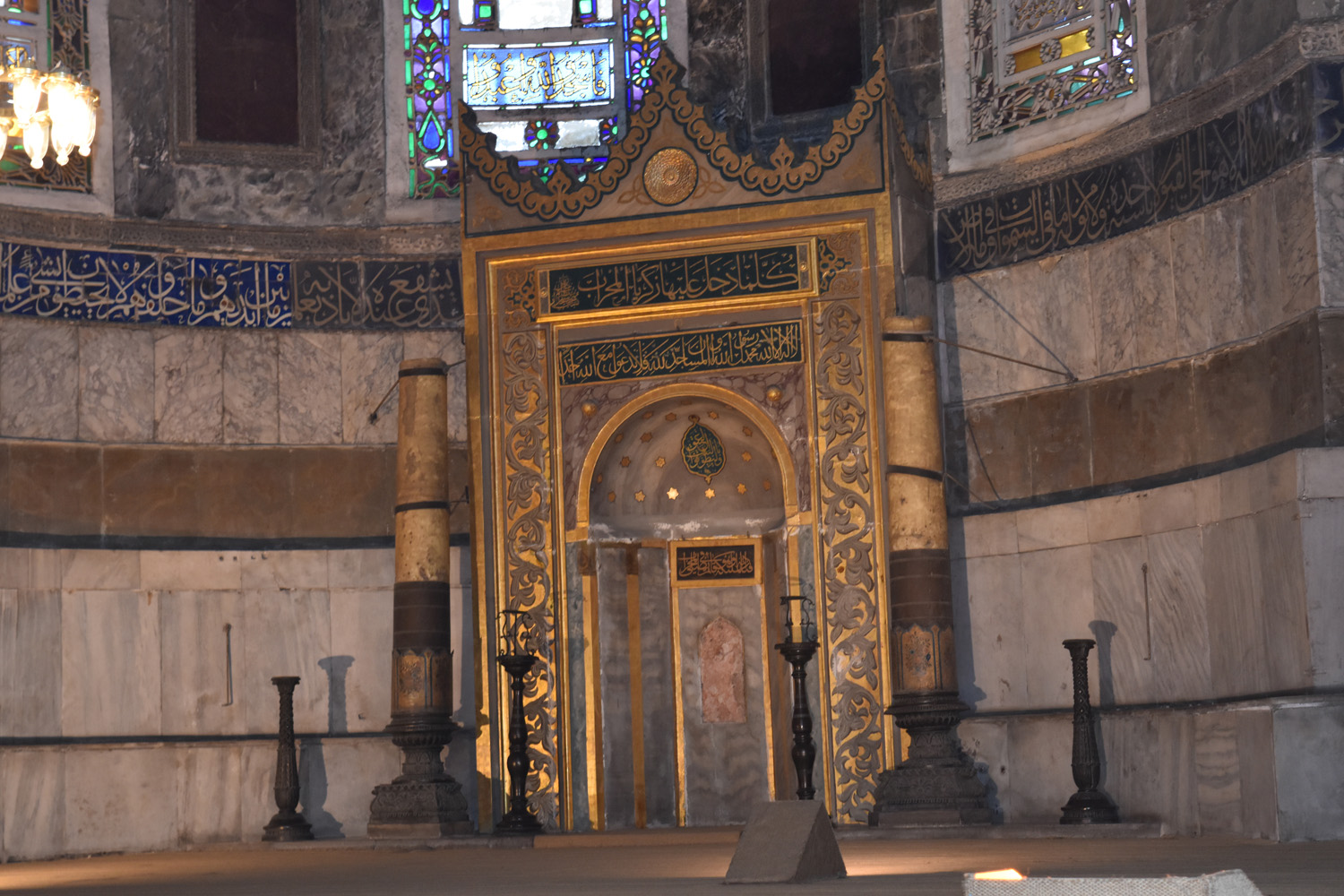July 24, 2023
Hagia Sophia in Istanbul marks 3rd anniversary of its reopening as mosque after 86 years
Story and pictures by Abdus Sattar Ghazali
The historical Hagia Sophia in Istanbul marked the third anniversary of its reopening as a mosque on Monday.
Ali Erbas, the head of the Turkish Presidency of Religious Affairs (Diyanet), led the morning prayer at the Hagia Sophia Grand Mosque.
Calling the reopening of Hagia Sophia as a mosque as “one of the happiest days” of his life, Erbas said: “Three years ago, on July 24, 2020, 86 years of longing came to an end.”
“With the decision of our president, Hagia Sophia was reopened for worship,” he recalled, adding that a total of 21 million people have visited the historical site ever since.
Noting that the place was inherited from Mehmed the Conqueror and is the most important symbol of the conquest of Istanbul, Erbas said he wishes that millions of people worship in Hagia Sophia until the end of time.
Fatih Sultan Mehmed, an Ottoman sultan, performed his first Friday prayer after conquering Istanbul in 1453.
Turkey's iconic Hagia Sophia Grand Mosque reopened for worship on July 24, 2020 for the first time in 86 years. "Hagia Sophia Grand Mosque is a cultural heritage of humanity as a whole. It was a mosque and was reverted back into a mosque," Turkish President Recep Tayyip Erdogan said following the prayers.
Following the prayers, Pesident Erdogan and Nationalist Movement Party (MHP) Chairman Devlet Bahceli visited the tomb of Ottoman Sultan Mehmed II, the conqueror of Istanbul.
Tellingly, Hagia Sophia opened as mosque on July 24 that is the 97th anniversary of the Treaty of Lausanne which Erdogan seeks to revisit. The treaty outlined the boundaries of the modern Turkish state after the demise of the Ottoman Empire.
Erdogan's misreading of Hagia Sophia's history?
Not surprisingly, the Saudi official mouthpiece the Arab News carried a number of articles to belittle the significance of reopening of Hagia Sophia as mosque as political analysts suggest that the Turkish President Erdogan is vying for Muslim world's leadership.
An article - Erdogan's misreading of Hagia Sophia's history - by Hussain Abdul Hussain, a former visiting fellow at Chatham House, a London-based biased think tank, says: Turkish President Recep Tayyip Erdogan is trying hard to impose a history where the Turks are imagined as the leaders of Islam and the rulers of the world. Converting Hagia Sophia into a mosque is part of Erdogan's dream of imperial dominance in the name of Islam.
Hussain argued Erdogan seems unaware that unlike Islam's divine shrines in Makkah, Madinah and, to a lesser extent, Jerusalem Hagia Sophia has no significance in Islam whatsoever. To Christians, however, Hagia Sophia has immense religious value. In fact, Ottoman conquerors turned it into the sultan's mosque as a proclamation that a new sheriff was in town, but otherwise did not even bother to Islamize its Christian name.
At the same time the Arab News published a series of articles by Prof. Talal Al-Torifi is a Saudi academic and media specialist bitterly criticizing the Ottoman Empire: (1). Turks' pre-Ottoman history based on myth and imagination; (2). Turkey repeating Ottoman Empire's crimes against Arabs; (3). Turkish propaganda ignores Ottoman violations of Two Holy Mosques; (4) Turks defrauding history with Ottoman monuments narrative.
Series of Arab News articles against Turkey
Prof. Talal Al-Torifi argues: The Turks, in general, are now adopting a deceptive policy, which is that they cry over Islam and the sultanate, but they are in fact crying for their pride and power and presenting it in the name and protection of Islam for propaganda purposes. Not surprisingly, Prof. Talal Al-Torifi conveniently ignored the well-documented history of Arab collusion with Britain to revolt against the Turks.
To borrow Mark Curtis, the author of Secret Affairs: Britain's Collusion with Radical Islam:
Britain had already provided arms and money to Ibn Saud during the First World War, signing a treaty with him in 1915 and recognizing him as the ruler of the Nejd province under British protection. By the end of the war, he was receiving a British subsidy of £5,000 a month - considerably less than the £12,000 a month doled out to Hussein (Sharif of Mecca), whom the British government at first continued to favor.
Ibn Saud established 'Saudi' Arabia in an orgy of murder. ". The conquest of Arabia cost the lives of around 400,000 people, since Saud's forces did not take prisoners; over a million people fled to neighbouring countries. Numerous rebellions against the House of Saud subsequently took place, each put down in 'mass killings of mostly innocent victims, including women and children'. By the mid-1920s most of Arabia had been subdued, 40,000 people had been publicly executed and some 350,000 had had limbs amputated; the territory was divided into districts under the control of Saud's relatives, a situation which largely prevails today.
Churchill described Ibn Saud's Wahhabis as akin to the present-day Taliban, telling the House of Commons in July 1921 that they were 'austere, intolerant, well-armed and bloodthirsty' and that 'they hold it as an article of duty, as well as of faith, to kill all who do not share their opinions and to make slaves of their wives and children". However, Churchill also later wrote that 'my admiration for him [Ibn Saud] was deep, because of his unfailing loyalty to us', and the British government set about consolidating its grip on this loyalty.
The story of British backed Arab revolt against the Ottomans will not be complete without mentioning the 1916 revolt of Hussein bin Ali, Sharif of Mecca who was appointed Grand Sharif by an official decree of the Sultan Abdulhamid on November 24, 1908.
Hussein bin Ali was rewarded for his collusion with Britain who made his sons Faisal and Abdallah kings of Iraq and Transjordan, respectively in 1921. The present King Abdullah II is the great grandson of Sharif of Mecca.
Sharif Hussein's son Faisal was made King of Syria, but this kingdom proved short-lived (March 1920 - 24 July 1920) as Syria was occupied by France under a secret agreement with Britain.
Abdus Sattar Ghazali is the Editor -in-Chief of the Journal of America. Email: asghazali2011 (@) gmail.com

|
Published since July 2008 |
Your donation
is tax deductable.
The Journal of America Team:
Editor in chief:
Abdus Sattar Ghazali
Senior Editor:
Prof. Arthur Scott
Special Correspondent
Maryam Turab




